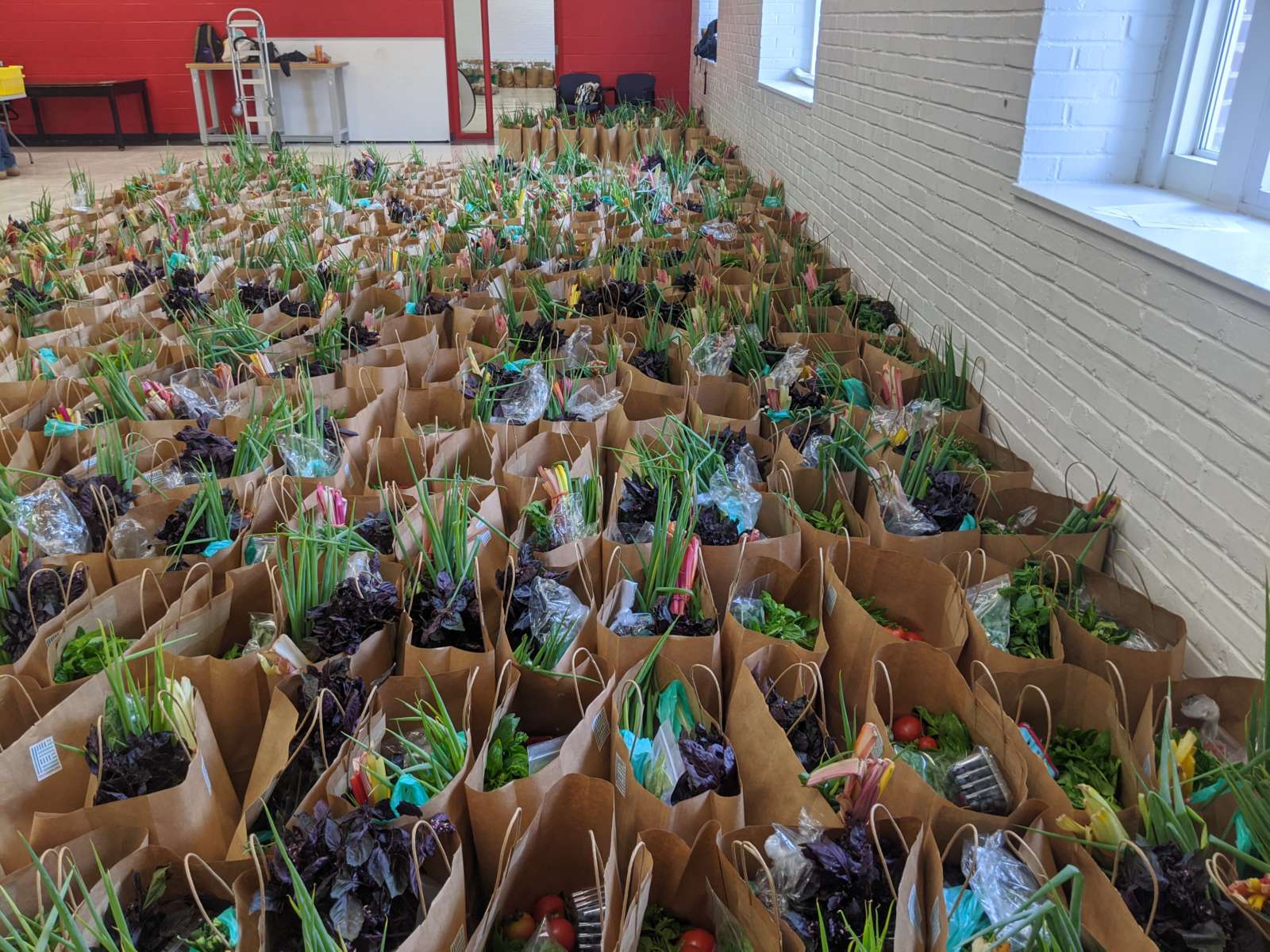(Updated at 1:30 p.m.) The Arlington County Council of PTAs is collecting money through Friday to buy fresh produce for families in need, with help from a local farmers market operator.
Through the initiative — part of the council’s pandemic relief efforts — the CCPTA is partnering with FRESHFARM Markets to provide fresh food to about 900 families who have been receiving food through seven PTA and school-based distribution sites. Fundraising will go until Dec. 4, with an extra push today (Dec. 1) for Giving Tuesday.
The food will be given out at the regular distribution times during the week of Monday, Dec. 14. So far, the council is more than halfway toward its goal: $11,851 of $20,000 has been raised as of publication time.
“We must ensure that children and their families do not go hungry,” said Emily Vincent, the CCPTA President in a statement. “Addressing food insecurity is essential to both well-being and education, as it is difficult for children to learn when they are hungry.”
Families have been able to access food, school and cleaning supplies, baby items and masks at the distribution sites since the spring, Vincent said. During the summer, these sites served approximately 2,500 families.
The work supplements the meal distributions organized by Arlington Public Schools.
“Our volunteer efforts are committed to serving their school communities and they are hopeful for a more sustainable and robust support system coordinated by Arlington County in the new year,” Vincent said.
The drive also supports local farmers, who have struggled to profit from their produce this year due to the pandemic.
In addition to running farmers markets in the D.C. area, FRESHFARM distributes local produce to small institutions such as daycares, which often lack the money and bulk needed to buy from larger distributors.
The arm of the nonprofit responsible for this program, Pop Up Food Hub, will purchase the food for the CCPTA fundraiser. A $22 donation to this food drive covers a week’s worth of produce for a family of four.
“While families have been grateful for the various types of food assistance that are available in the neighborhood, many have requested assistance with obtaining fresh food beyond the non-perishable pantry food products and single serve meals,” the donation page said.
Many food drives focus on packaged goods because they last and can be bought cheaply, said Sebastian Muenchrath, an operations manager for Pop Up Food Hub. But that pushes fresh fruits and vegetables to the side for hungry people who need a balanced diet, too.
The bags will rely on long-lasting winter staples such as squash, onions, apples and potatoes, with some leafy greens, although they are scarcer these days.
The CCPTA has “been great at understanding what the local supply looks like right now,” he said.
Muenchrath said the PTA has mobilized a “small army” of volunteers to distribute the food, taking tips and tricks from Pop Up Food Hub.
Food drives have stretched FRESHFARM’s operations into the winter months and have given farmers more chances to make money, he said. That is critical in 2020: While the pandemic has disrupted food distribution channels, farmers are still growing produce.
Some family farms primarily or exclusively rely on farmers markets for their sales, Muenchrath said. When the markets were shut down, owners panicked as they tried to find ways to make up for lost revenue.
“The food is still there: It’s in abundance, and it’s available,” he said.
So much so that small and large operations have seen increases in food waste nationwide. At the same time, Feeding America estimates that 50 million people may struggle with hunger, in part due to the pandemic.
Regionally, FRESHFARM started tackling these two problems by establishing partnerships between Pop Up Food Hub and organizations that feed people in need.
Even after the markets reopened, farmers still lost out on cash because fewer people came, and many of Pop Up Food Hub’s traditional buyers are still closed, Muenchrath said. With the pandemic still underway, FRESHFARM and its farmers are planning for how to operate next season.
“We’re under the impression we’ll still be working under pandemic restrictions,” Muenchrath said. “Hopefully we’ll continue to receive support from community to continue to support the work we’re doing.”




